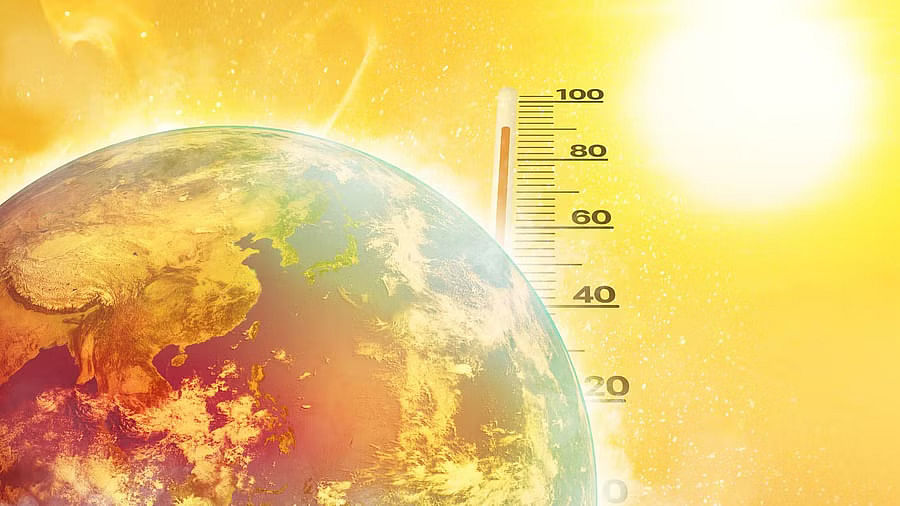
Representative image for global warming.
Credit: iStock Photo
While the last few decades have seen an expansion of education, especially to those in the lower strata in poor countries, there has always been concern over the quality of education. Year after year, complaints are heard that the standards have fallen, and reports say children in higher classes do not possess the literacy, numeracy and knowledge expected of children in lower classes. Many reasons, like lack of infrastructure and shortage of teachers, are cited for this. But there are other reasons which have not received adequate attention till now. The Global Education Monitoring (GEM) report, compiled by Unesco and the University of Saskatchewan in Canada, says global warming and climate change are threatening to undo all the educational gains made in recent times all over the world.
According to the report, climate-related extreme events like heat, wildfires, floods, droughts, cyclones and rising sea levels have progressively caused school closures, increased dropout numbers and resulted in learning losses. In the last two decades, schools were closed in at least 75% cases by extreme weather events which caused damage to educational infrastructure, and resulted in injuries and casualties. The report says that exposure to higher than average temperature during the prenatal and early childhood years had links with fewer years of schooling, especially in South-East Asia. Students from marginalised populations were found more vulnerable to climate change problems. High temperatures affected test performance and high school graduation and college entrance rates in China. The impact is felt in both rich and poor countries because climate change affects all, but the poor countries are affected more. Of the 33 countries identified as bearing extremely high climate risks for children, 29 are considered to be fragile states.
Education in India has also been impacted by climate change. The report quoted a study which said rainfall shocks over the first 15 years of life in India negatively affected students’ vocabulary at age five, and mathematics and non-cognitive skills at age 15. It was also found that children of parents with lower educational backgrounds were more affected. An analysis of disasters experienced early in life by over 1.4 lakh children in seven Asian countries found a negative association with school enrolment, especially for boys, and with mathematics performance, especially for girls, by the time they reached 13 to 14 years. The report shows that climate change should be considered an important factor in education, as it is in other areas, and its impact is bigger than imagined till now.